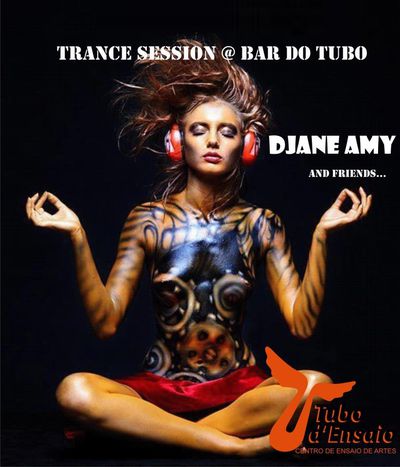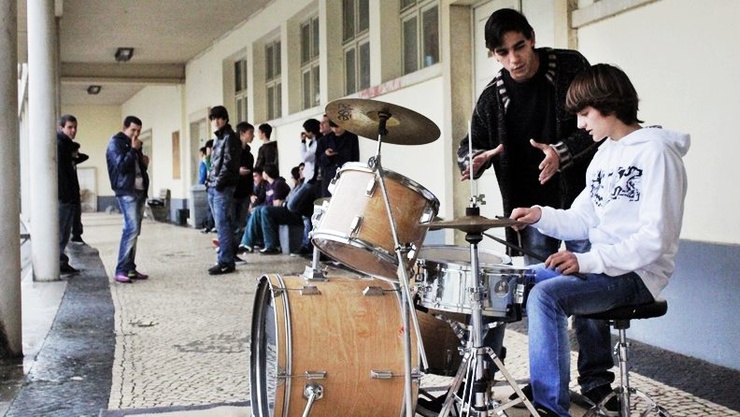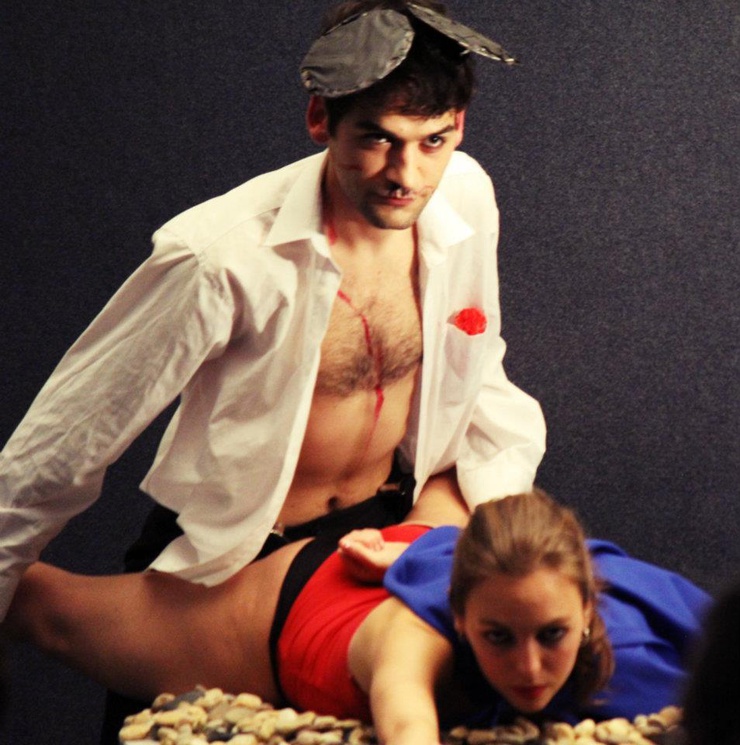
Anarchists bring legal squats to Portugal with 'Tubo d’Ensaio'
Published on
Translation by:
babylon babylonIn the city of Figueira da Foz in 2006, 200km north of Lisbon in the district of Coimbra, a group of young anarchists founded the 'test tube of arts' centre. Now based in an old university building, it's a success story which has opened up a space (and a song) for the country's independent cultural scene
It all began as the idea of a group of young ideological anarchists. After having trotted around different parts the world, they returned to their native Figueira da Foz in 2006, with the aim of resolving one of the problems of why they had left in the first place: the city’s devastating artistic scene. They decided to create a centre that could be used as a meeting place for the arts, with a horizontal governance of autonomous nature. In return, they asked the city council for a building where they could unfold their project, as squatting in Figueira da Foz is practically impossible.

Costumbrismo
The city council responded with a definitive no: it was unthinkable that a city in Portugal, a country severely criticised for its costumbrismo (the literary or visual interpretation of the local everyday life and customs of a country or region which pays particularly close attention to detail), would hand over a building so that an anti-establishment group could use it. The group squatted anyway; the neighbours were quick to condemn that as an act of vandalism. In the end, the group rented a premises where they could actually get their project underway. Tubo d'Ensaio, which translates to 'test tube for the arts' in English, immediately garnered a positive reception. 'Various bands recorded their first demos at this first venue. The classes that were offered there were all revolutionary in their variety and pricing for the city,' explains Carolina, a political scientist from the area.
Four years later, the successful group made the same request to the city council - again, the answer came back as negative. With no other choice, they employed the foolproof method of playing the facts off against each other in the media. They threatened to go to press with a report comparing the city council’s cultural offerings with the culture budget, and the offerings of their anti-establishment group with its very minimal budget. The strategy worked; the city council ended up handing over the international university’s old building to them. Although it was in a wretched state, the members of the cultural organisation and various volunteers got to work restoring it.
Rise in cultural awareness
Interestingly, the members of Tubo d’Ensaio d’Artes dealing with the management of the centre do not receive any compensation for this responsibility: they are only paid for the work they do related to cultural activities. 'This position highlights the belief that we should all help to raise the cultural sphere to the level of importance it deserves in society,' says Lara, a young native of Figueira who lived in the Netherlands for several years as a Greenpeace spokesperson, and who now runs a horse riding scheme for autistic people.

'The space that Tubo d’Ensaio offers has culturally invigorated Figueira de Foz in a matter of six months,' says Miguel, an engineering physicist who is a bass guitarist in his spare time. 'It provides an opportunity for projects and bands to publicise their work through the promotion of concerts and festivals.' Bands are able to record their work at relatively low prices. Miguel points out that music lessons have also been a bonus to the city, given that they offer quite competitive prices compared to those in the rest of the country. 'Since I've been on the Figueira da Foz music scene, I have never seen so many people playing and with such enthusiasm as now. Without a doubt, that's been a turning point for Tubo d’Ensaio on an artistic level.'
To Coimbra and beyond
Today, the organisation is run by Pedro Saboga and has just under a dozen activites on offer, from exhibitions, film screenings and concerts, to workshops, courses in literature, music and theatre, via yoga and sewing classes. Likewise, space is given to other organisations so that they can run their projects. Besides available slots for weekly concerts, they have a bar, a second-hand clothes shop and four apartments which take in artists. Moreover, they have attained a partnership with the prestigious university of Coímbra. Over the next academic year, some courses will be held at this organisation’s headquarters.
'These kind of schemes almost always come from people who do not want to accept the limitations which the system imposes on them'
Is it not odd that the authors of this project are a bunch of anti-establishment types? 'It seems quite reasonable,' replies Lara. 'These types of schemes are used as alternatives to what's on offer at the moment. They almost always come from people who do not want to accept the limitations which the system imposes on them. History shows that the people who change the world are the non-conformists, the anti-establishment types, the revolutionaries. They are those people, who with a little boldness and common sense, manage to open new doors to a system that does not support independent projects. That helps the pathway to art evolve.' This idea can be used as a vision to demonstrate that it is possible to create communities that are governed in an egalitarian way if you are determined, and use common sense - like El Tubo d’Ensaio.
Images: courtesy of © Tubo d'Ensaio official facebook page/ video (cc) Ricardo Marques/ youtube
Translated from Tubo d’Ensaio: un curioso ejemplo de okupación legal



